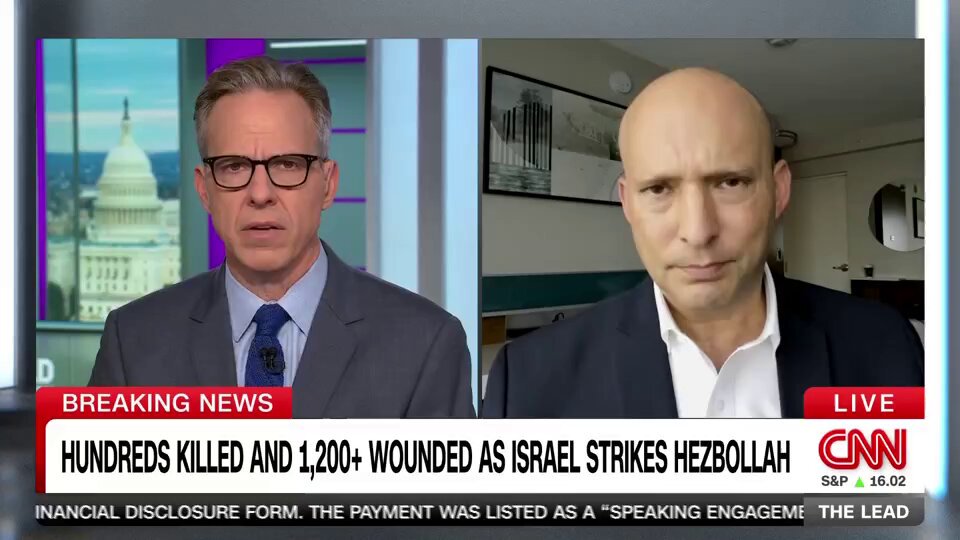The statement by the former Israeli Prime Minister Naftali Bennett urging the Lebanese people to 'topple' Hezbollah constitutes public discourse as it directly addresses a significant public issue involving international relations, security, and political dynamics in the Middle East. The tone is assertive and calls for action, reflecting a strong stance on a contentious issue.
- The statement could potentially incite conflict or violence, which may cause harm, thus violating this principle. [-2]Principle 1:I will strive to do no harm with my words and actions.
- The statement does not engage in cyberbullying, harassment, or hate speech, but it does not explicitly respect the privacy and dignity of others either.Principle 2:I will respect the privacy and dignity of others and will not engage in cyberbullying, harassment, or hate speech.
- The statement does not promote understanding, empathy, or compassion; rather, it calls for a political upheaval. [-2]Principle 3:I will use my words and actions to promote understanding, empathy, and compassion.
- The statement does not engage in constructive criticism or dialogue; it is a direct call to action without room for discussion or debate. [-1]Principle 4:I will engage in constructive criticism and dialogue with those in disagreement and will not engage in personal attacks or ad hominem arguments.
- The statement uses the influence of a former Prime Minister to address a significant issue, but the call to 'topple' a group could be seen as promoting instability rather than the betterment of society. [-1]Principle 6:I will use my influence for the betterment of society.
- The statement upholds the principle of free speech but the responsibility and integrity of using such a platform can be questioned given the potential for inciting conflict.Principle 7:I will uphold the principles of free speech and use my platform responsibly and with integrity.
